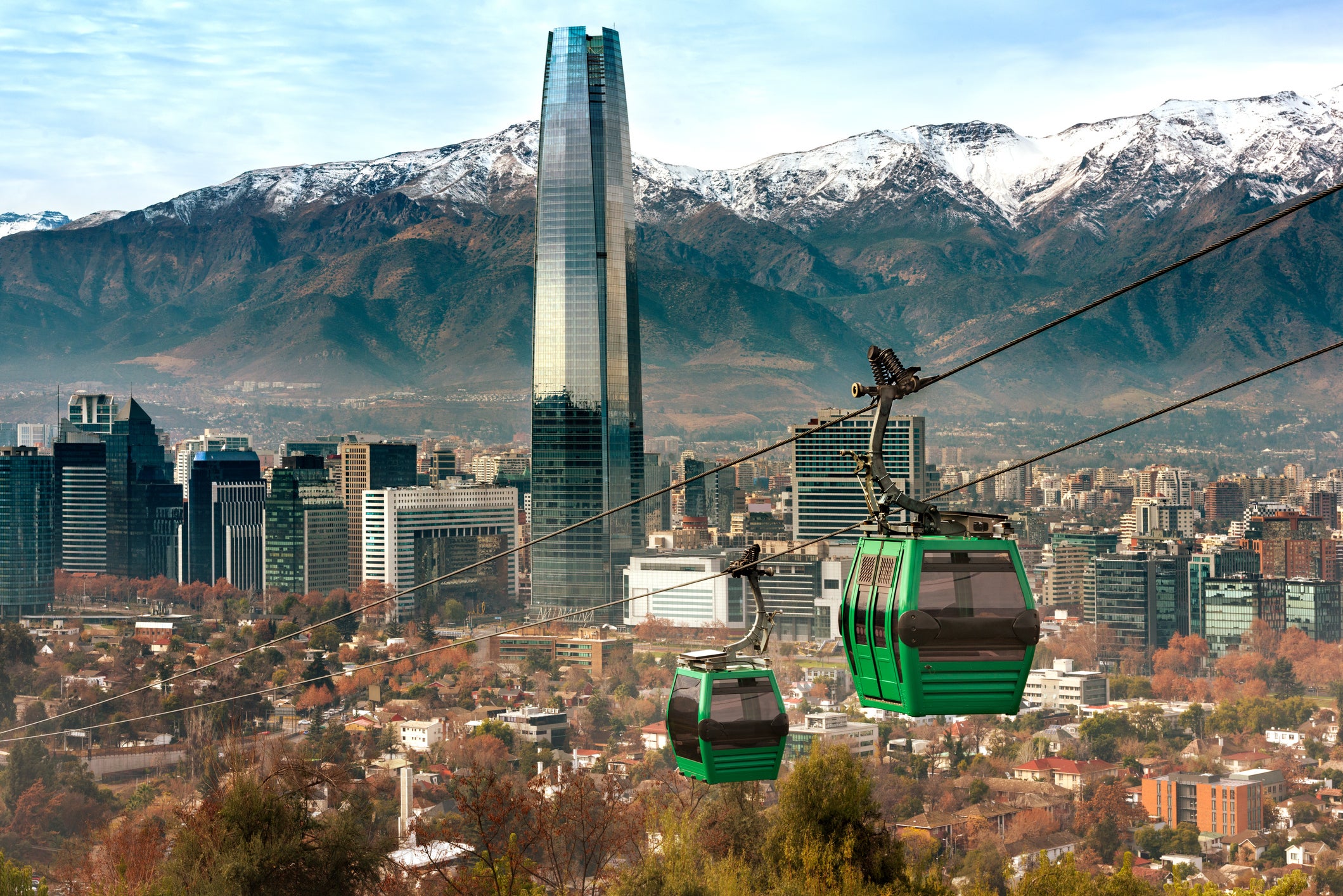When will Chile’s strict Covid rules be removed?
Simon Calder answers your questions on South American travel and the best safaris in Africa


Q Our Chile trip was postponed due to Covid. You still face testing on arrival in the country and, consequently, it is still too risky. When do you see this changing?
“Coopon”
A Your question takes me back to before Christmas 2020, when – for a few fleeting days – I considered booking a southern hemisphere break to Santiago de Chile with some exploration beyond the capital.
As things turned out it would have been as completely impractical as, say, a trip to Australia. But unlike that southern hemisphere nation, Chile is still imposing some tough rules. The Foreign Office says: “Upon arrival, you should follow the instructions of airport authorities regarding testing requirements. You might need to undergo an antigen or PCR test, either in the airport or at an external laboratory outside the airport.
“If you undergo an antigen test, you will need to wait for the results in the airport. If the result is positive, non-resident foreigners will be denied entry into the country.”
Prospective visitors are, understandably, highly concerned by this. Someone who unknowingly becomes Covid positive, then touches down in Chile and is selected for an antigen (lateral flow) test could find themselves in a dreadful no-man’s-land – not allowed to be admitted into Chile, but not able to fly out while infectious.
Clearly you can try to minimise the risk by taking a Covid test before you board the plane, but you cannot eliminate the possibility entirely.
The one circumstance in which you can go to Chile confident of avoiding an unpleasant surprise is if you tested positive for Covid with a PCR test between 10 days and one month before boarding a flight to Chile; and in the 72 hours before your flight, also had another positive PCR test. That would be a challenge for most prospective visitors. However, things are pointing in the right direction. This weekend, the Netherlands abolished all its restrictions, and there are reports that Hong Kong may remove mandatory hotel quarantine. Meanwhile, summer is on the way in the southern hemisphere, making it more likely that rules will be eased by the government in Santiago.

Q I’m after some advice for a safari trip. It’s a retirement holiday, now that Covid has lifted. Any time of the year. I’ve been recommended by others to do South Africa. What’s your advice?
Sharon
A Safaris are rewarding in many parts of the world, including the Amazon and India, but I sense you have Africa in mind. So I shall focus there.
I have been lucky enough to have three wildlife trips to Africa. The first included Hwange National Park in Zimbabwe – covering an area three-quarters of the size of Wales, with lion, elephant and giraffe in abundance. But the tourist industry in Zimbabwe was severely damaged by Robert Mugabe and you may not have such a great experience there.
Next, an outstanding stay at the original Kicheche camp in Kenya’s Masai Mara. While it is expensive to reach and to stay in, the tour guides are superb and the service impeccable.
The third was a very different experience, yet still extremely rewarding: an overland trip with Dragoman, beginning in Victoria Falls, Zimbabwe but spending the vast majority of time exploring Botswana and Namibia – with rhino, leopard, elephant and zebra. With so much natural beauty in the region, this was the adventure I enjoyed most (and also the cheapest – transport is provided by a converted Sainsbury’s lorry).
I have not yet enjoyed a safari in South Africa, but I know the biggest and most celebrated National Park is the Kruger – an area of protected land the size of Wales that was first designated in 1898. It is located in the northeast of the country, against the Mozambique border, and the relatively new Skukuza Safari Lodge looks a good place to stay. Some experts swear by the private game reserves adjacent to the Kruger: Londolozi and Mala Mala. And expertise is exactly what you need when planning a trip of a lifetime like this. Talk to a range of overland firms and specialists such as Expert Africa, based in Isleworth. They will advise on the ideal location and timing for your budget. Just bear in mind that the entire safari industry in Africa uses US dollars, so the cost in puny British pounds is climbing.
Email your question to s@hols.tv or tweet @simoncalder
Join our commenting forum
Join thought-provoking conversations, follow other Independent readers and see their replies
Comments

Bookmark popover
Removed from bookmarks